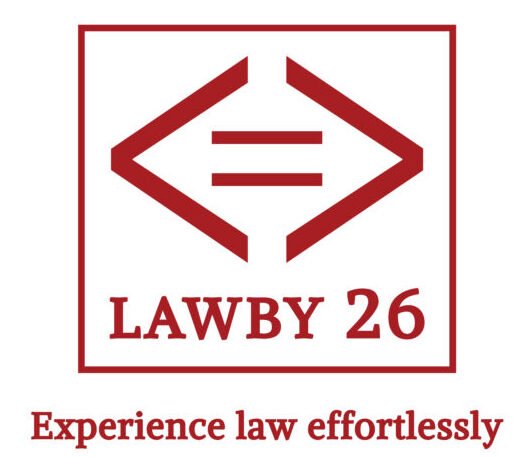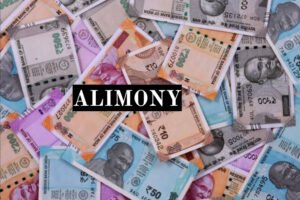Music royalties are compensatory payments received by right holders (songwriters, composers, recording artists) in exchange for the licensed use of their music. These royalties are paid out by institutions that use the music from TV channels, radio stations and venues to stream live performances.
When recordings get played and streamed – or performed or covered – a song’s right holders receive payments. There are a few different ways you can monetise these song rights, with the four main types of royalty being mechanical, public performance, print music, and sync royalties.
Each royalty stream is dependent on the type of copyright it is associated with, with every song being attached to two different types of copyright:
- Master Rights – covering the original sound recording.
- Publishing Rights – protecting the lyrics and melody of a song
As soon as a composer creates a piece of music, a copyright is immediately created with it. Although there is an official recording, the copyright is attached to the piece created from the start itself. The issue with copyright is that ownership has to be physically proved. Therefore, as much as the copyright matters, what matters the most is the proof of ownership of the copyright, with a date to testify the creation of the music.
Today, copyrights are submitted and recorded by Performing Rights Organisations (PRO). Present in most countries, these societies allow a composer or a songwriter to record the creation of a piece of work, to have its usage controlled, and to have its finances regularly collected and distributed.
Status in India
Musicians, producers, and singers earn money through the contract signed and through sales. They also earn money through live performances and tours. However, composers get paid as a one-time payment and do not cash in on royalty; instead, they go to the company that sells the music, popularly known in the industry as record labels.
We often hear a popular song in public places, but many are unaware that the owners of such places need a licence to play it. The Indian Performing Rights Society Ltd (“IPRS”) was founded in 1969 for the sole purpose of issuing licences to music users. They also collect royalties from song compositions on behalf of their members, who include lyricists, music directors, and sound producers.
The dispute of copyright in the works of music composers with that of the producers of a film has always been a question of debate. The composers and lyricists are always demanding a share in royalties. This dispute was taken up in the Indian Performing Rights Society vs. Eastern Indian Motion Pictures Ltd, AIR 1977 SC 1443, (1977) 2 SCC 820, [1977] 3 SCR 206 [1] case. Before this judgement was delivered on 14th March 1997, there was a long-standing dispute between music composers and producers of the film over the issue of copyright, and IPRS would claim the royalties over the songs that would be played in public places.
The claims of the Appellants in the above case were that composers of literary or musical work have exclusive copyrights on that work, and that right is infringed upon when someone plays without permission from the owner of the copyright. They argued that section 17(b) of the copyright act had no application; hence, the producers of the film could not claim copyright to the work. The Respondents, on the other end, argued that section 17(b) would apply only when producers hire composers to make music which would be part of a film for consideration. Justice Iyer extended the scope by saying the producer does have exclusive rights over the film as a whole, and he does not need to pay a fee or royalty to IPRS, but if the producer plays any part of the music separately to attract an audience, that would cause an infringement.
As a result of this judgement, the Parliament had to bring an amendment act of 2012 which specifically understood the difference between the usage of the work in cinematograph film and other uses of such work across different mediums. Accordingly, contracts were mandated to stop an author incorporated in cinematograph film from collecting royalties in case of usage of his work other than cinematograph film, which would be considered void.
The judgement of 1997 was relied upon by the Supreme Court in 2016 in the International Confederation of Society of Authors vs. Aditya Pandey & ors, MANU/SC/1028/2016 [2]. The Supreme Court believes that a 3rd party, such as event management/organisers who would play a song in public, are required to pay royalties to only music recording companies and is not required to pay to lyricists and music composers.
Dispute between Ilayaraja and SPB
Ilaiyaraaja and SP Balasubrahmanyam’s camaraderie is well-known in the Tamil film and music industry. So it came as a huge surprise to many when Ilaiyaraaja’s advocate sent SPB a legal notice asking him not to perform any songs composed by Ilaiyaraaja without his permission. This happened when the legendary singer SPB performed concerts in the US as part of the SPB50 world tour, which began in 2016 in Toronto. SPB, his co-singers Chithra and son Charan, organisers of the concerts and venue management firms, received the notices a day before one of the events. The notice stated that if the troupe continued to perform his compositions, they would break the copyright law and have to pay huge fines. This case stirred the discussion on how royalties work in the music industry and how most artists end up with less than what they deserve.
The legal issues raised by this dispute are rather simple. When a music composer creates a new composition, the Copyright Act, 1957 automatically creates a copyright in the music without the requirement for any pre-formalities such as registration with the Copyright Office. As per Section 17 of the Copyright Act, the copyright will vest either in the music composer or if the composer is an employee of a music label or production house, the ownership of the copyright will vest in the employer, depending on the terms of the contract.
In this case, since Ilayaraja has reportedly issued the legal notice in his name, it is most likely that he has retained the copyright in his own name for the international territories where SPB is performing. Once the ownership question is clear, it is necessary to move on to the rights vested in the copyright owner. This question can be answered by looking at Section 14(a)(i), which gives the copyright owner rights, including the right to reproduce or perform the work or communicate it to the public. This means that anytime a person performs a music composition in public via a live broadcast, they require the prior permission of the copyright owner. Under the Copyright Act, performers have a performer’s right and not a copyright. Section 38 of the Act states:
“(1) Where any performer appears or engages in any performance, he shall have a special right to be known as the “performer’s right” in relation to such performance.”
In other words, this means that any person who wants to record or broadcast a singer on stage requires the prior permission of the performer or the person to whom the performer has assigned this right. However this does not mean the performer can sing whichever song he wants to. He is required under law to obtain permission from the person owning the copyright in the music and lyrics. The performer’s right to perform a particular song is, therefore, contingent on the person owning the copyright in the underlying music and lyrics.
[1]AIR 1977 SC 1443, (1977) 2 SCC 820, [1977] 3 SCR 206
[2]MANU/SC/1028/2016



